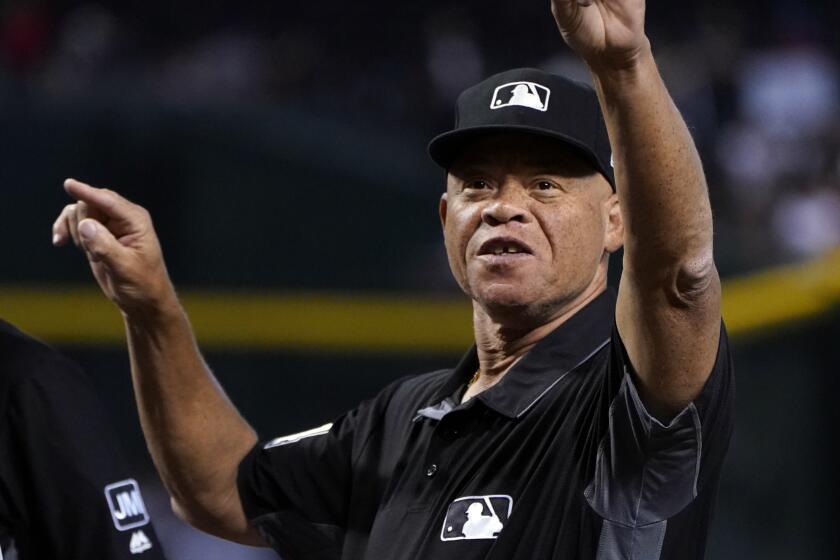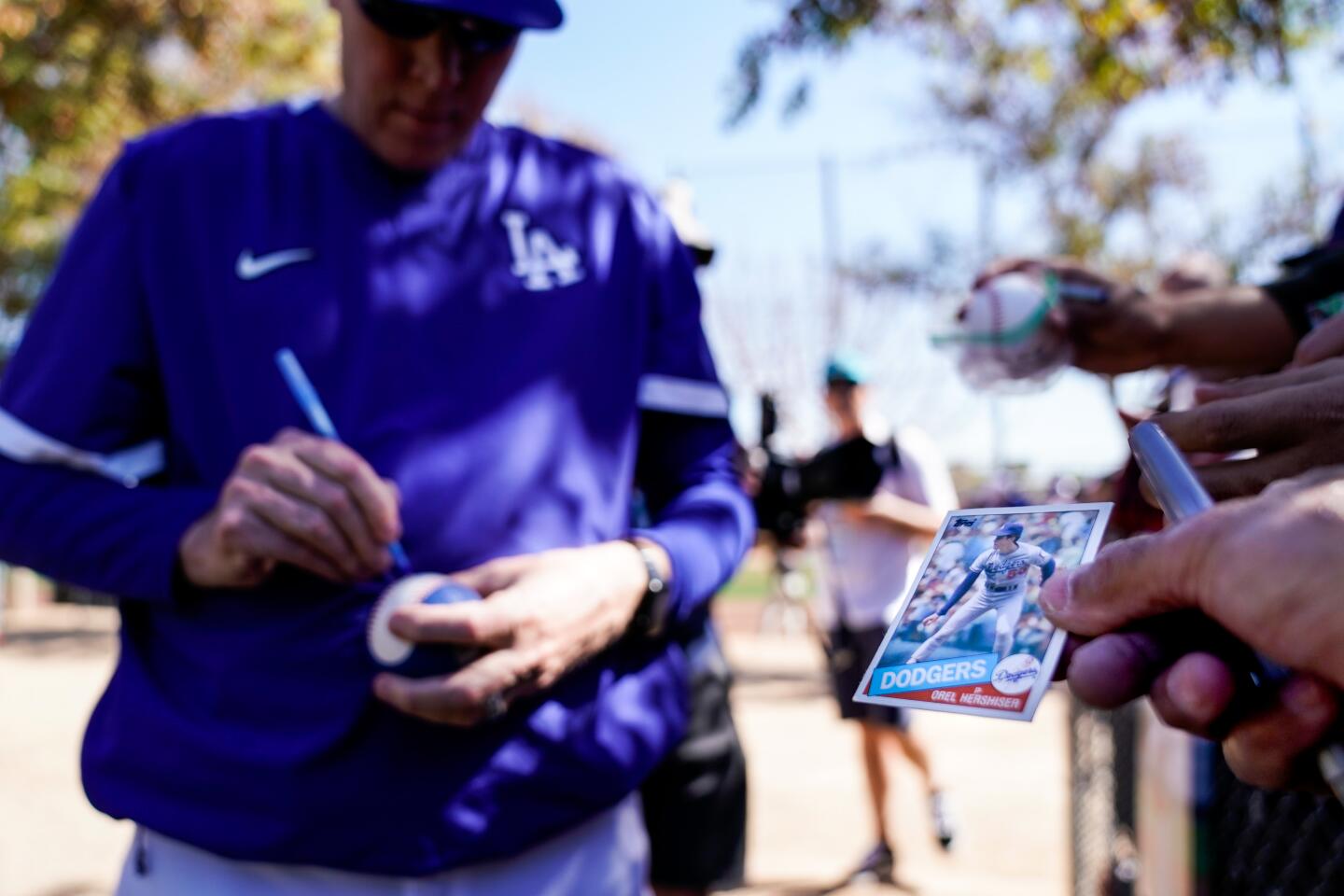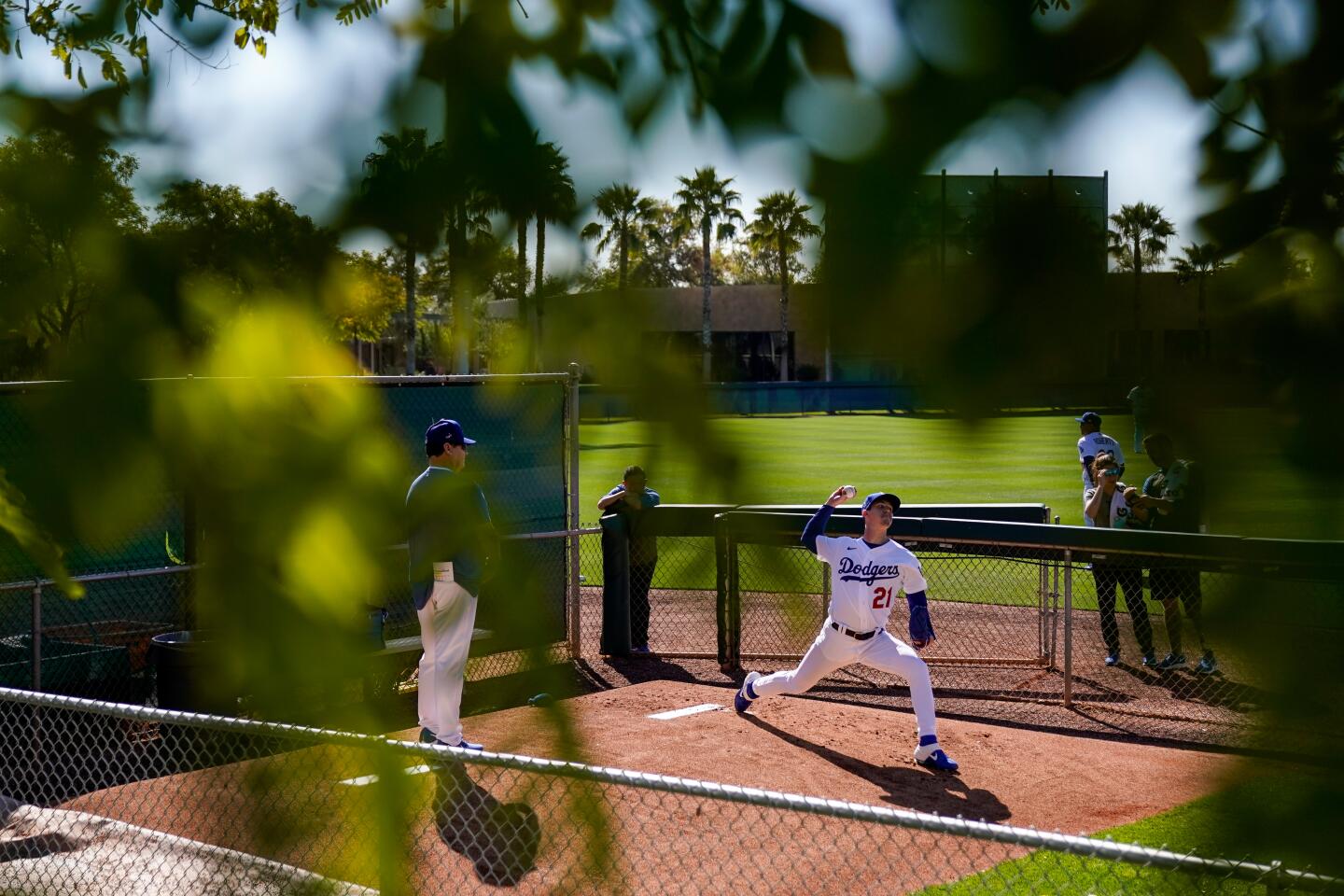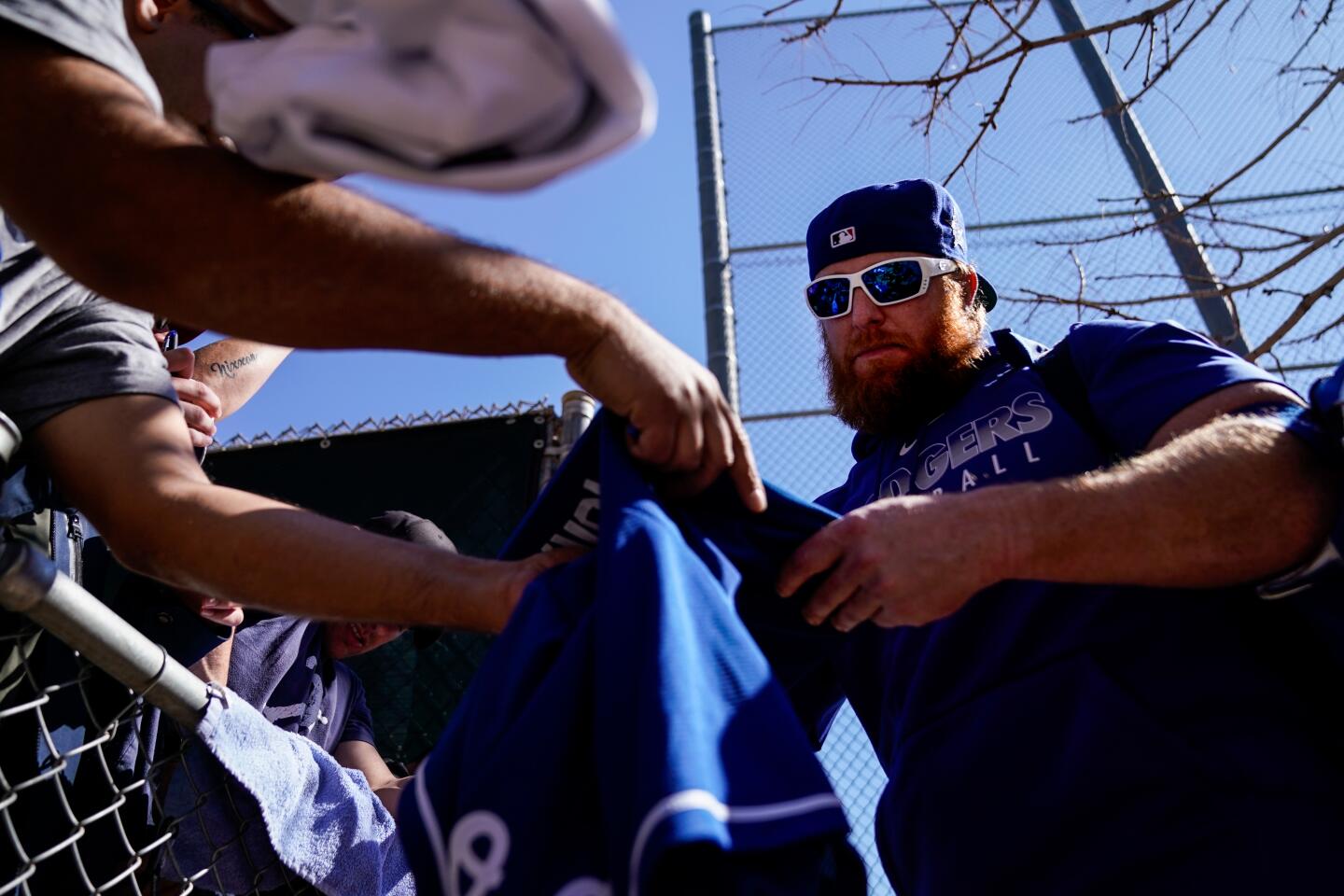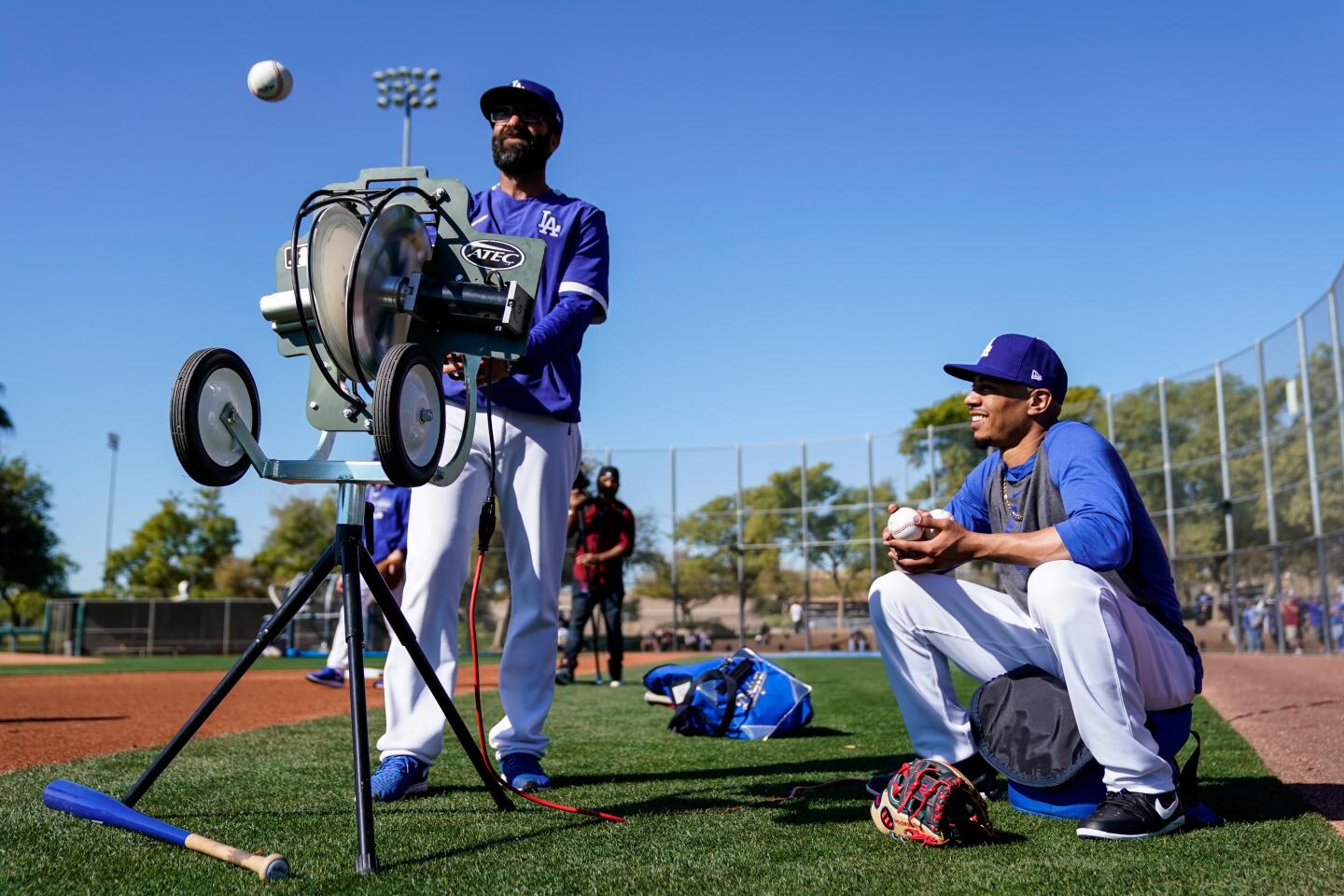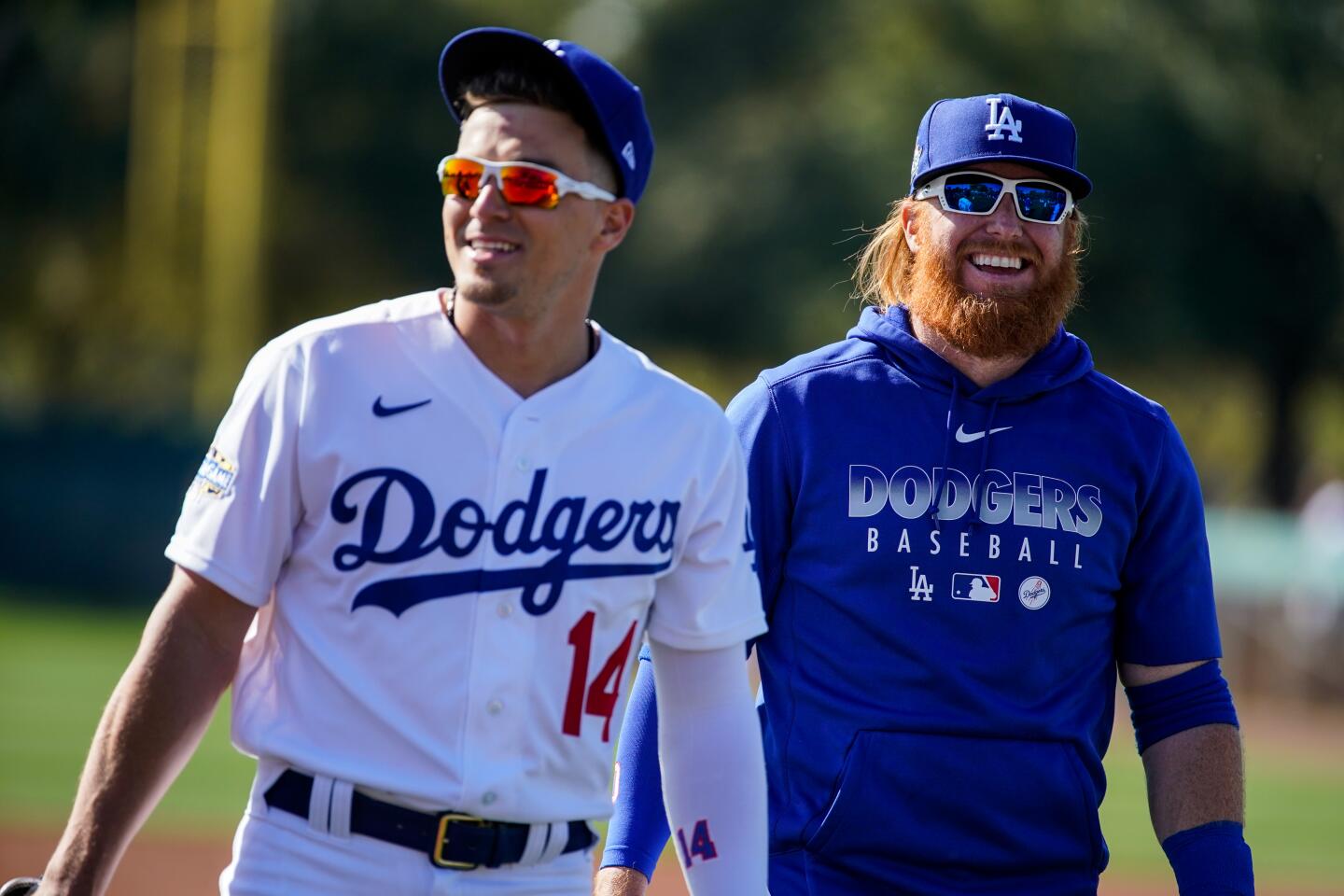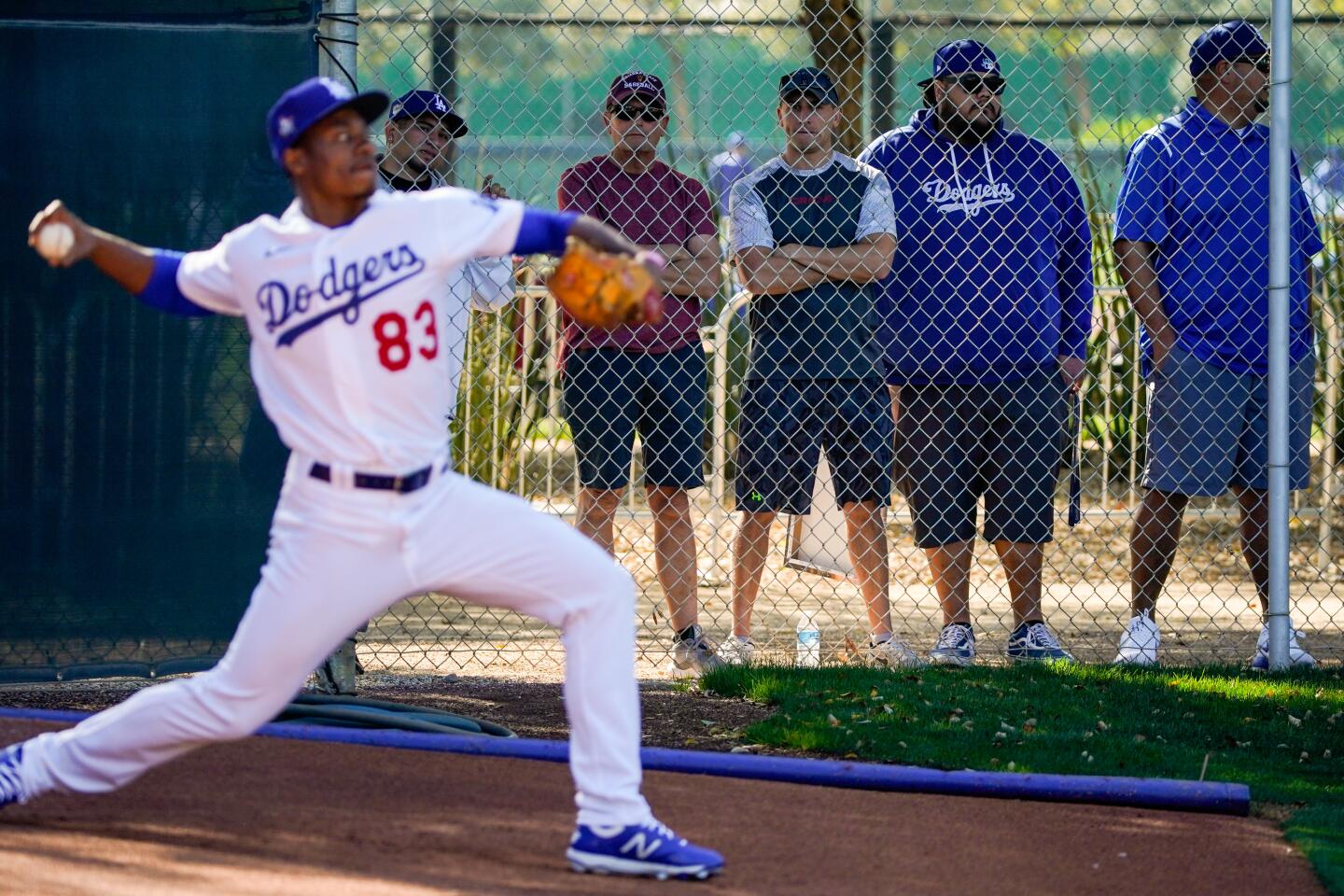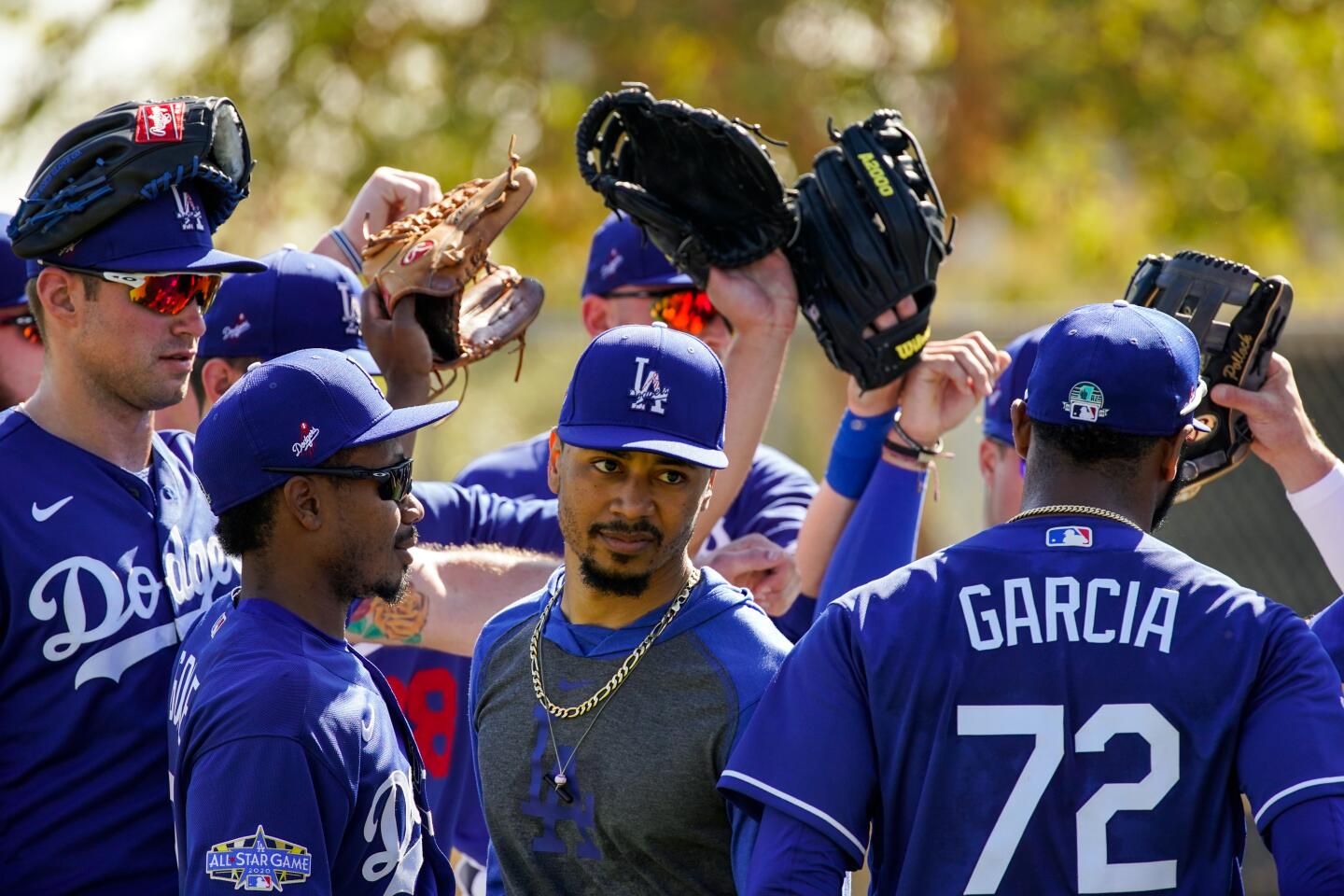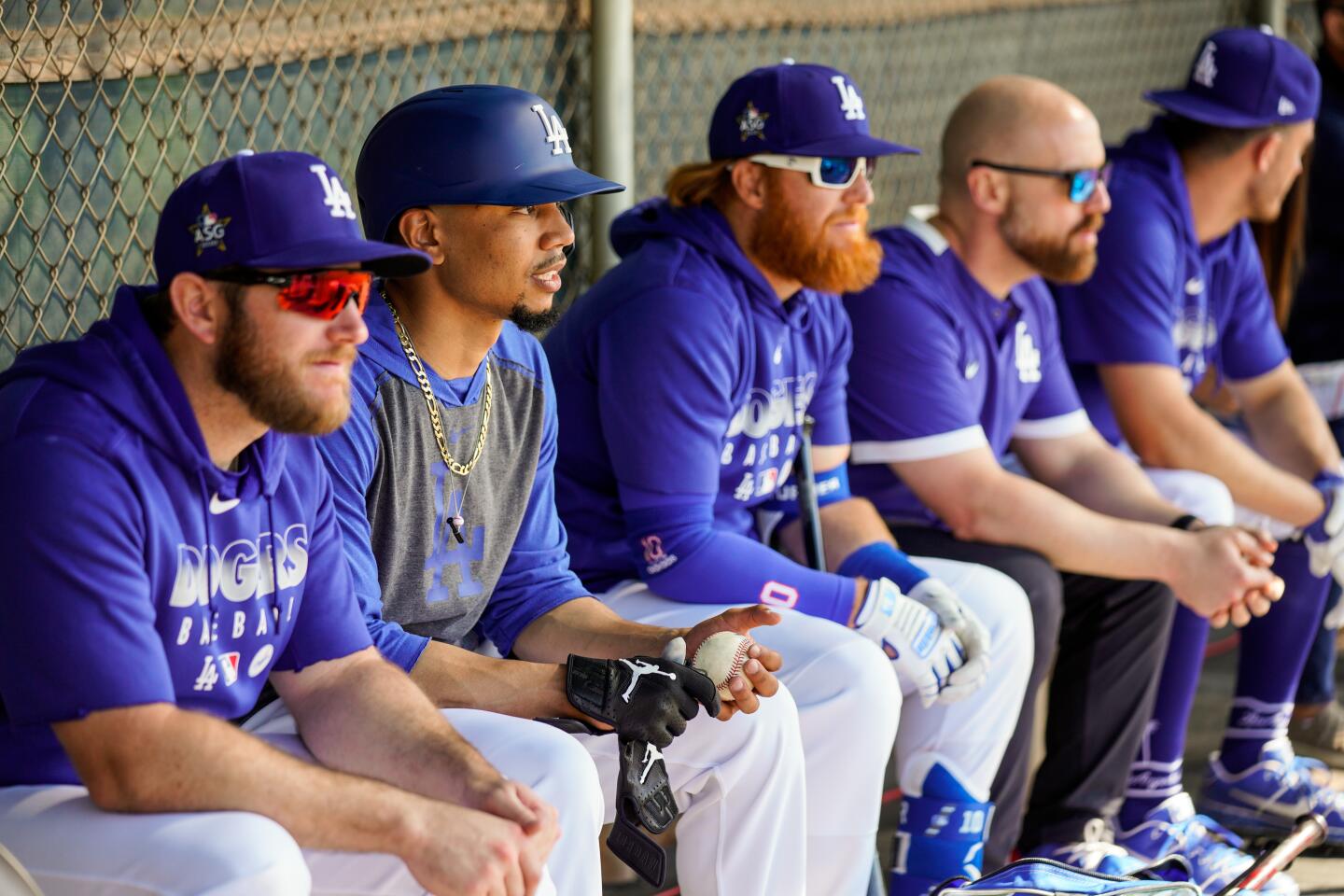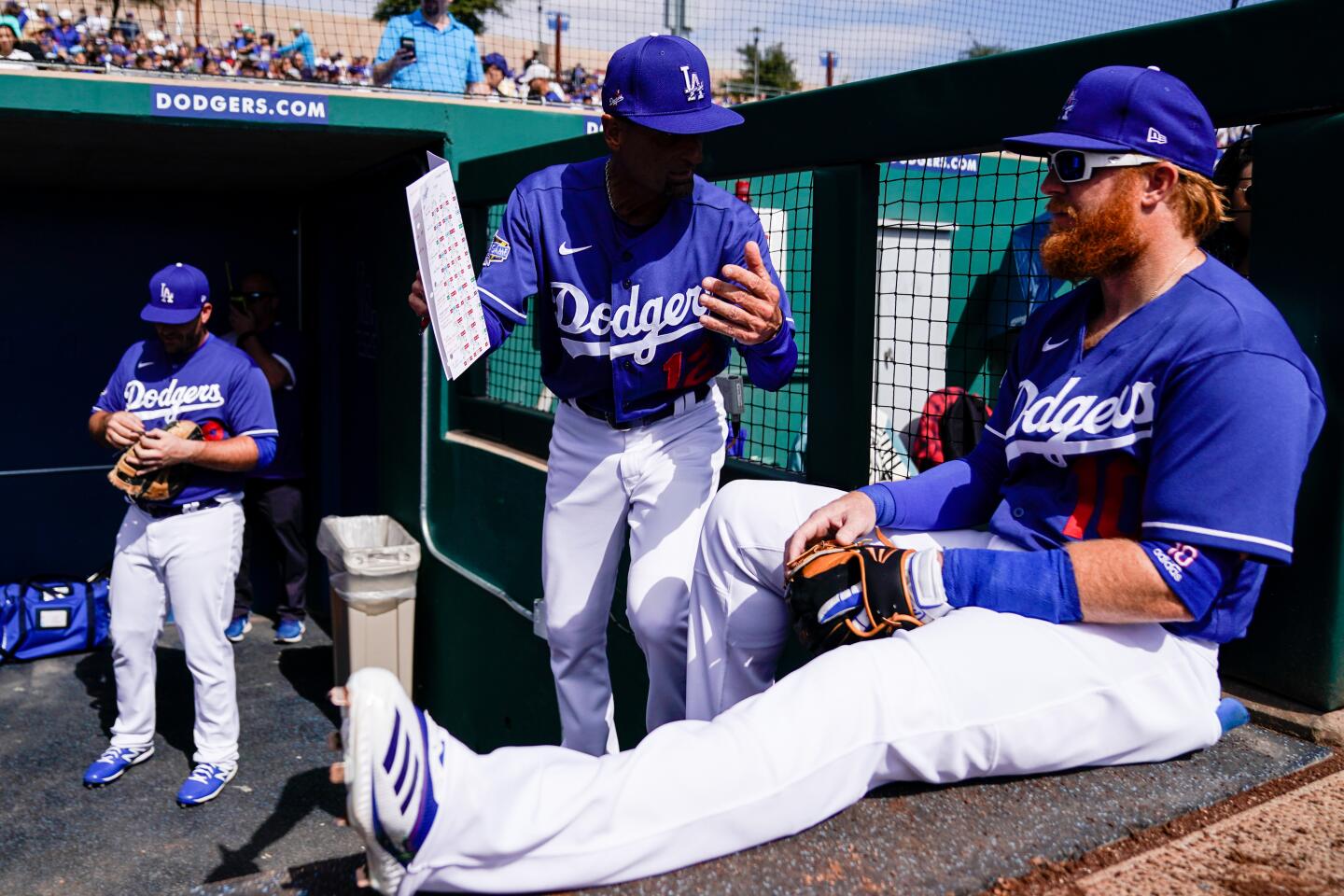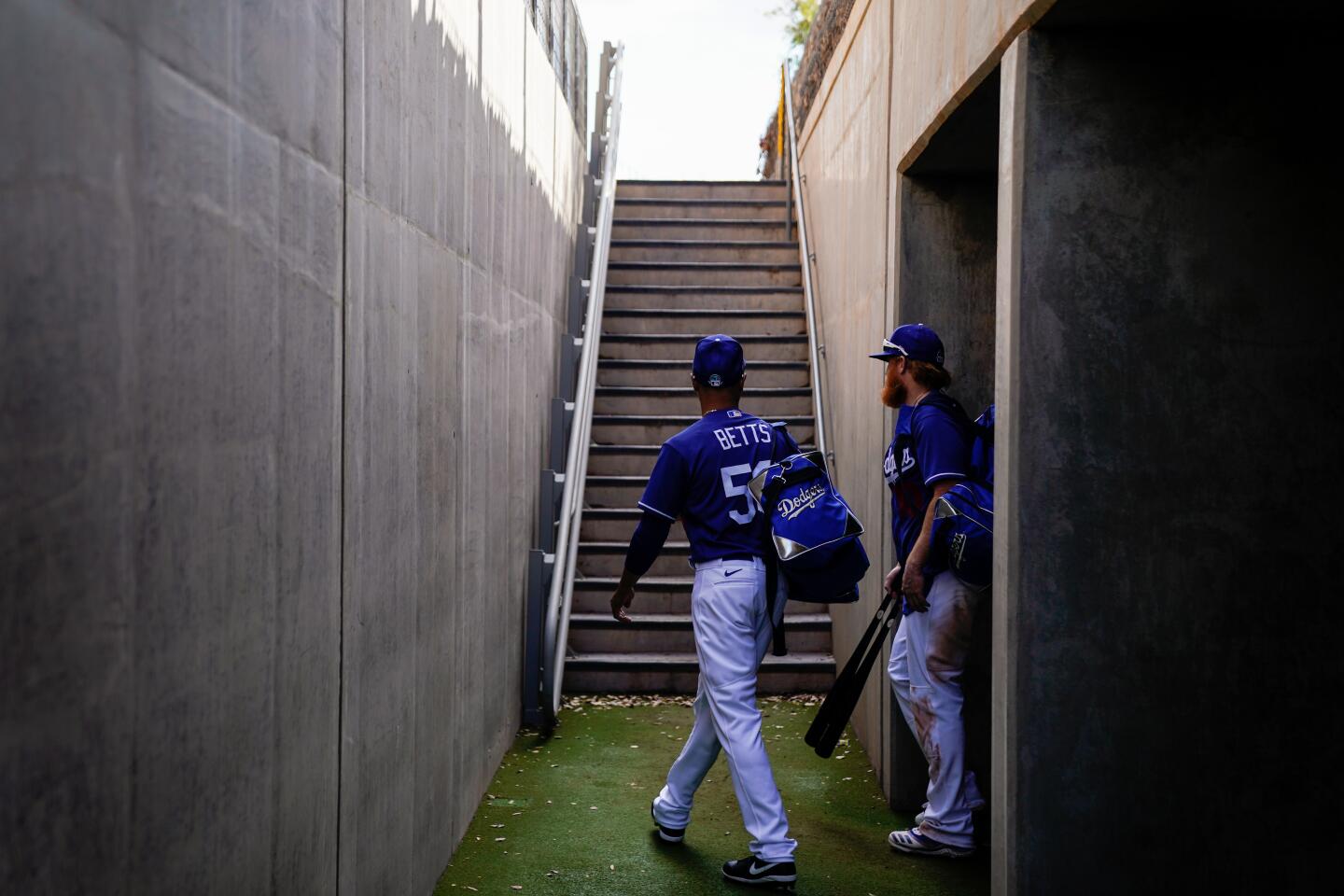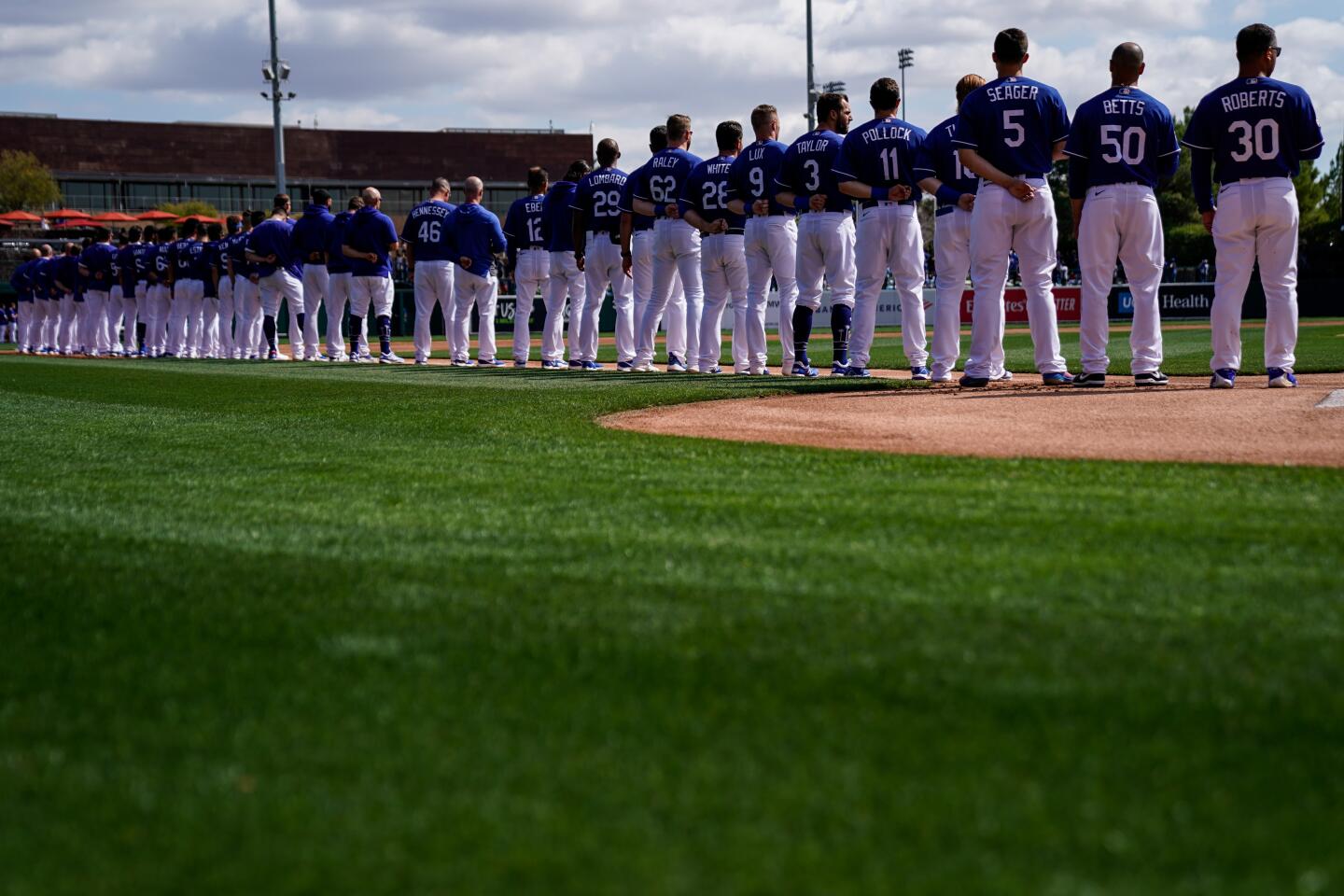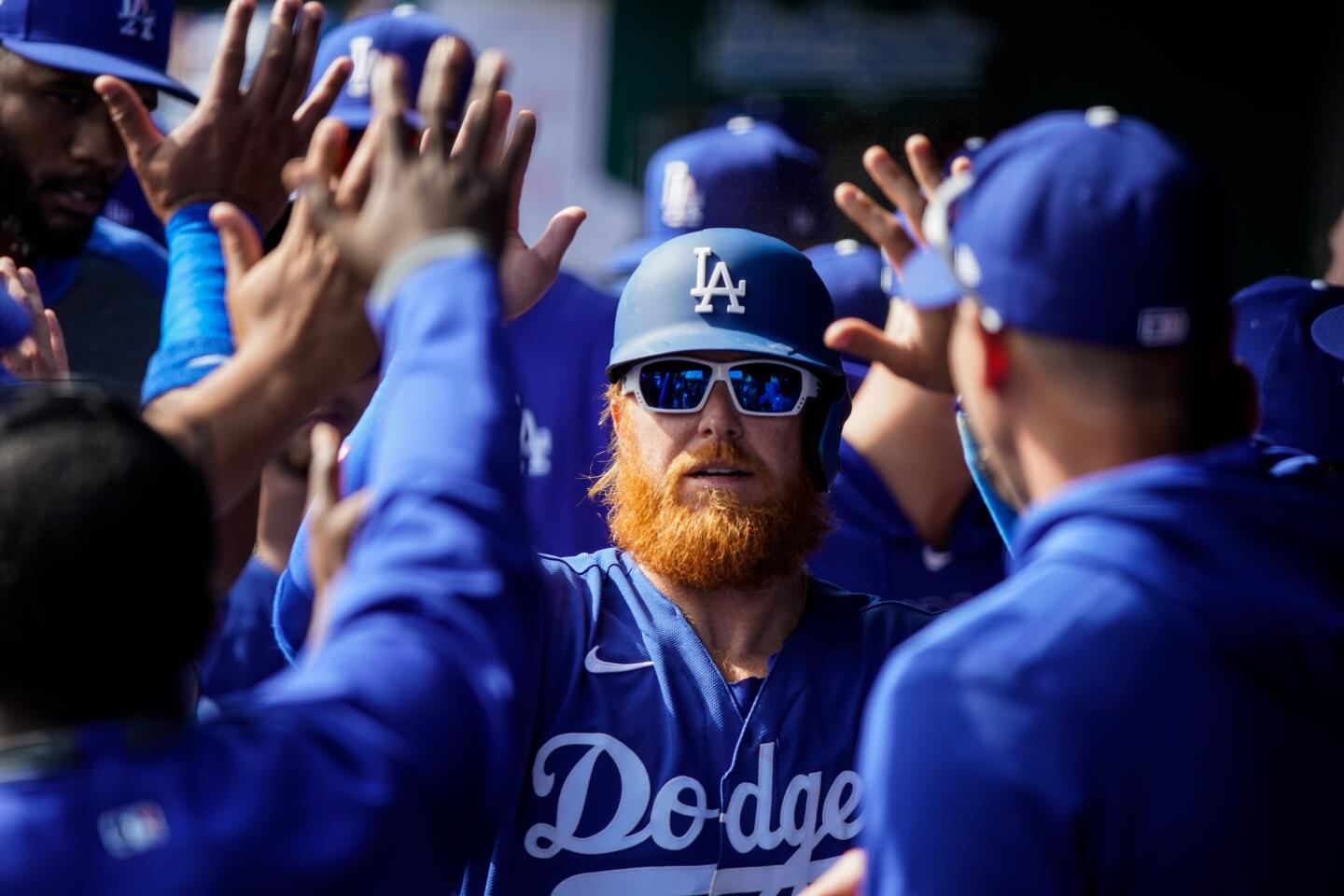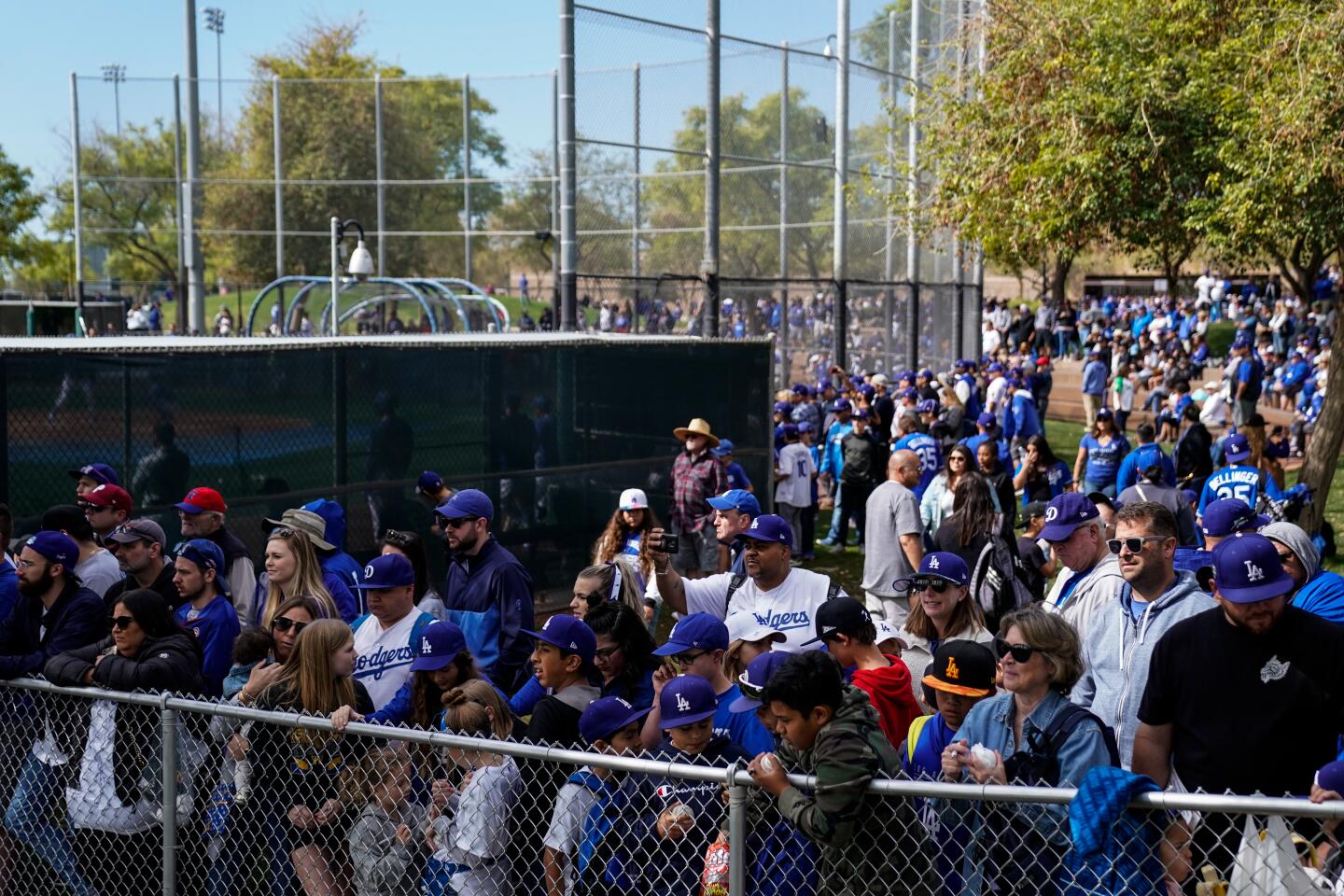Dodgers’ Gavin Lux must continue to prove he deserves to start at second base

- Share via
GOODYEAR, Ariz. — Gavin Lux doesn’t want to spend another day in the minor leagues, so he spent the bulk of his offseason in Los Angeles.
Five days a week during the winter he would head to Dodger Stadium for workouts. He ate two meals a day there while he worked out with established big leaguers and hitting coach Robert Van Scoyoc. He traveled home to Wisconsin only for holidays and family birthdays. Otherwise, he was in Los Angeles working and becoming acclimated to the city. He envisions it becoming home once spring training breaks.
“You don’t want to go back,” Lux said. “You want to stay here. You want to be a part of what’s going on. For me, it was easy.”
Lux’s talent is unmistakable. The charismatic 22-year-old middle infielder is regarded as a top-five prospect across baseball after scorching the upper minors and making his major league debut last season. He made the Dodgers’ postseason roster and started three of the team’s five postseason games at second base.
The transition wasn’t seamless. Lux confronted obstacles typical for green big leaguers. He did nothing, however, to change his status as the franchise’s second baseman of the future. But is he the Dodgers’ second baseman on opening day? Manager Dave Roberts recently declined to commit to that.
“We still got a long way to go before we got to make that decision,” Roberts said. “But obviously, what Gavin did last year, the upside and all that stuff, he’s certainly in that conversation.”
Major League Baseball will have its first African-American and Mexican-American umpire crew chiefs this season.
Roberts said he believes Lux has earned a spot on the opening day roster, but must continue earning one. The Dodgers boast perhaps the deepest roster in baseball. They could opt to keep Lux in the minor leagues and have Max Muncy, Kiké Hernández and Chris Taylor split time at second base.
Doing so could allow the club to limit Lux’s service time to ensure he is under team control an extra season; if Lux, who has accumulated 28 days of service time, finishes the season with 171 or fewer days, he would become a free agent a year later.
Many teams have gone to those measures to extend team control for highly touted prospects without publicly admitting the practice. Players are eligible for free agency after six years of service. The goal is to effectively stretch it out to seven. The Chicago Cubs, for example, delayed third baseman Kris Bryant’s debut in 2015 until April 17. The Cubs said they wanted Bryant, who batted .425 with nine home runs in spring training, to improve his defense and cut down on strikeouts.
Bryant, the second overall pick in the draft two years earlier, spent 12 days in triple A before getting called up to the majors. Coincidentally, or not, he compiled 171 days of service time that season. He filed a grievance, claiming the Cubs manipulated his service time, but lost the case last month. Instead of becoming a free agent after this season, he won’t test the market until after the 2021 campaign.
Like Bryant five years ago, there isn’t much left for Lux to prove in the minor leagues. He batted .347 with 26 home runs and a 1.028 on-base-plus-slugging percentage in 113 games between double-A Tulsa and triple-A Oklahoma City last season. He remedied a throwing problem that plagued him in his first big league camp last spring while transitioning from shortstop to second base. He belonged when he arrived in September and the Dodgers, enamored with his potential, again refused to trade him during the winter.
“The toughest jump is from triple A to the major leagues,” Dodgers third baseman Justin Turner said. “So I didn’t expect him to come up and hit .400 like he did in Oklahoma City, [but] wouldn’t have been surprised if he did. Just impressed with the ABs. The bat speed. The [dynamism] on defense. He’s going to be a good player.”
Lux said he learned from that first stint. Most importantly, he said, he believes he applied too much pressure on himself in the batter’s box. He was a patient hitter in the minors but found himself becoming too aggressive in a Dodgers uniform.
“I was afraid to hit with two strikes,” Lux said. “I didn’t want to go in and strike out.”
Dodgers relief pitcher Kenley Jansen spent the offseason working on regaining his form. Early results have been encouraging.
Comfort should come with experience. He already feels the difference in the Dodgers’ clubhouse at Camelback Ranch. A year ago, his locker was on the other side of the room, by the other minor leaguers, in his first big league camp. He made sure to blend in with his peers.
He’s a louder presence this year, unafraid to crack a joke or speak up. His locker is along the wall with veterans he trained with in Los Angeles. They were his peers during the winter and he expects they will be all season.
“It was easy to stay motivated,” Lux said, “because you got a taste of what it was like.”
Nelson takes step back
Jimmy Nelson, who has dealt with groin and back trouble, suffered a setback after throwing a bullpen session Wednesday, Roberts said. Nelson, a starter before shoulder and elbow injuries limited him to 10 appearances in the last two seasons, signed a one-year contract last month worth $1.25 million guaranteed. Roberts said Nelson is competing for a spot in the bullpen this spring.
More to Read
Are you a true-blue fan?
Get our Dodgers Dugout newsletter for insights, news and much more.
You may occasionally receive promotional content from the Los Angeles Times.

